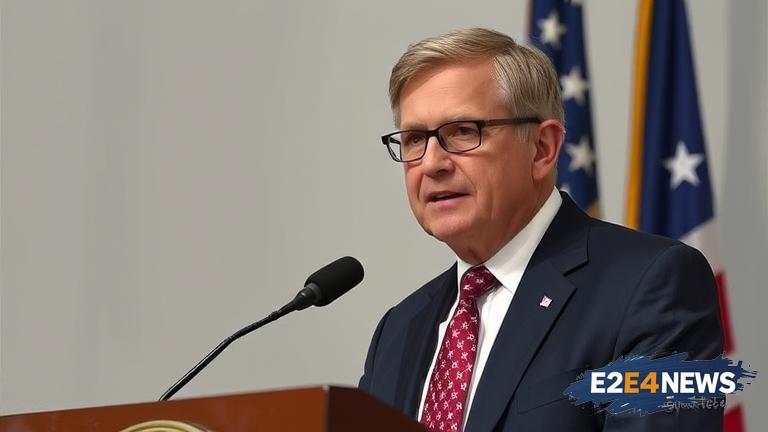Ohio Governor Mike DeWine has recently announced a comprehensive plan to enhance public safety in the state. The proposal includes a range of measures aimed at supporting law enforcement, promoting community development, and providing mental health support. According to DeWine, the plan is designed to address the root causes of crime and violence, rather than just treating the symptoms. The governor’s proposal includes increased funding for law enforcement agencies, as well as the creation of new community programs to support at-risk youth and families. Additionally, DeWine has called for expanded mental health services, including crisis intervention training for law enforcement officers. The plan also includes measures to reduce recidivism rates, such as job training and education programs for individuals released from prison. DeWine has emphasized the importance of community involvement in the plan, encouraging residents to take an active role in promoting public safety. The governor’s proposal has been met with support from law enforcement officials and community leaders, who praise the comprehensive approach to addressing public safety concerns. However, some critics have raised concerns about the cost of the plan and the potential impact on marginalized communities. DeWine has acknowledged these concerns, stating that the plan is designed to be flexible and adaptable to the needs of different communities. The governor’s office has also announced plans to establish a new task force to oversee the implementation of the plan and ensure that it is effective in reducing crime and improving public safety. The task force will be comprised of representatives from law enforcement, community organizations, and state agencies. DeWine has stated that the plan is a long-term investment in the safety and well-being of Ohio residents, and that it will require ongoing commitment and support from state and local officials. The proposal has been praised by national experts, who note that it represents a significant shift in the way that public safety is approached in the United States. Rather than relying solely on punitive measures, the plan focuses on addressing the underlying causes of crime and promoting community development. DeWine’s proposal has also been recognized for its emphasis on mental health support, which is seen as a critical component of effective public safety strategies. The governor’s office has announced plans to provide additional funding for mental health services, including crisis intervention training and counseling programs. Furthermore, the plan includes measures to improve police-community relations, such as de-escalation training and community outreach programs. DeWine has stated that building trust between law enforcement and the communities they serve is essential to promoting public safety. The governor’s proposal has been met with support from civil rights organizations, who praise the emphasis on community-led initiatives and the recognition of the need for police reform. However, some critics have raised concerns about the potential for over-policing in marginalized communities, and have called for greater transparency and accountability in the implementation of the plan. DeWine has acknowledged these concerns, stating that the plan is designed to be responsive to the needs of all communities, and that it will be subject to ongoing evaluation and review. The governor’s office has announced plans to establish a new database to track the effectiveness of the plan, and to provide regular updates to the public on its progress. Overall, DeWine’s proposal represents a significant effort to enhance public safety in Ohio, and has the potential to serve as a model for other states and cities. By focusing on community development, mental health support, and law enforcement reform, the plan offers a comprehensive approach to addressing the complex issues that underlie public safety concerns.
